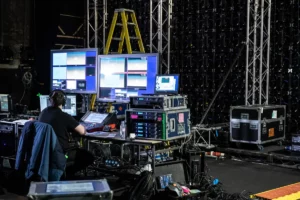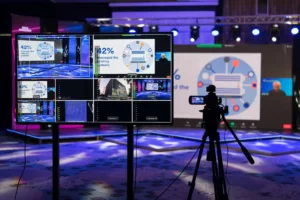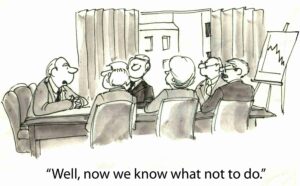In the rapidly evolving landscape of virtual events, engaging audiences is not just about delivering content but creating immersive, interactive experiences that transcend physical boundaries.
At Honest AV, we recognize the pivotal role of audience engagement in virtual settings.
This comprehensive guide explores effective strategies for virtual events and best practices to captivate remote attendees, foster meaningful interactions, and maximize the impact of virtual events, all while maintaining a focus on enhancing attendee experience.
Understanding Dynamics When Engaging Audiences
Remote attendees bring diverse backgrounds, time zones, and technological competencies, posing unique engagement challenges.
Unlike in-person events, where physical presence naturally fosters interaction, virtual settings require deliberate strategies to maintain attendee interest and participation.
Successful engagement hinges on understanding these dynamics and tailoring event experiences to accommodate global audiences seamlessly.
Crafting Compelling Content
Compelling content forms the cornerstone of any engaging virtual event. Tailor content to resonate with remote attendees’ interests, pain points, and industry trends.
Effective storytelling techniques help deliver information in a compelling narrative format, bridging the digital divide and capturing audience attention and engaging audiences.
Incorporating multimedia elements such as videos, infographics, and interactive slides enhances engagement by appealing to visual and auditory senses.
Leveraging Audience Interaction Tools
Interactive features play a pivotal role in virtual event engagement by facilitating real-time interaction and feedback.
Implementing live polls, surveys, and Q&A sessions encourages active participation and provides valuable insights into attendee preferences and sentiments.
These tools foster dialogue between speakers and participants, creating an inclusive environment where every voice can be heard and valued.
Personalization and Customization
Personalizing the virtual event experience enhances attendee satisfaction and engagement levels. Use attendee data to customize event communications, including personalized invitations and tailored content recommendations.
Offering customizable session agendas or content tracks empowers attendees to curate their event journey based on their interests and learning objectives, thereby enhancing overall attendee experience and retention.
Facilitating Virtual Event Networking and Collaboration
Building connections in a virtual environment requires purposeful design and facilitation. Establish virtual networking lounges, breakout sessions, and roundtable discussions to facilitate peer-to-peer interactions and knowledge exchange.
Integrate collaborative tools like virtual whiteboards or document sharing platforms to enable real-time collaboration among attendees, fostering a sense of community and collective learning.
Integrating Gamification Strategies
Gamification enhances attendee engagement by incorporating game-like elements into the event experience.
Incorporate quizzes, challenges, and leaderboards to incentivize participation and reward attendee interaction.
Gamified activities not only entertain but also educate and motivate attendees to actively engage with content and each other throughout the event.
Ensuring Accessibility and Inclusivity
Ensuring accessibility is crucial for creating inclusive virtual event experiences.
Provide closed captioning, sign language interpretation, and language translation services to accommodate diverse attendee needs.
Implementing accessible design principles and practices ensures that all participants, regardless of disabilities or language barriers, can fully engage with event content and activities.
Measuring Engagement and Effectiveness
Analytics are essential for assessing attendee engagement levels and event effectiveness.
Monitor key metrics such as attendance rates, interaction levels, and feedback scores to gauge event impact and identify areas for improvement.
Use data insights to refine content strategies, optimize engagement tactics, and enhance future virtual event planning and execution.
Case Studies and Success Stories
Real-world examples demonstrate the application of effective engagement strategies in virtual events.
Highlight organizations that have successfully engaged remote audiences through innovative approaches and best practices.
Learn from their experiences, challenges overcome, and lessons learned to inspire and inform your own virtual event strategy.
Conclusion
Engaging Audiences in virtual events requires a strategic blend of compelling content, interactive tools, personalized experiences, and inclusive design.
By implementing these strategies, organizations can create immersive, impactful virtual event experiences that resonate with attendees and achieve desired outcomes.















































